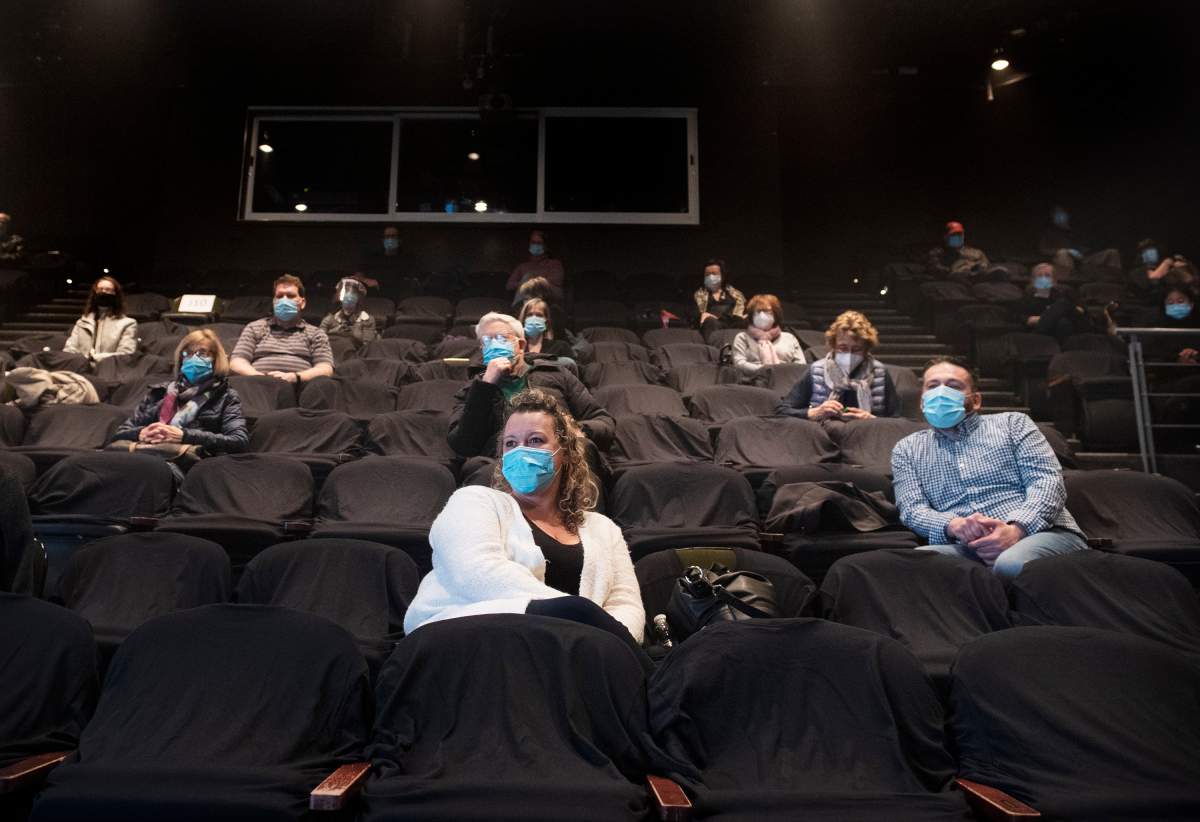The professional body representing Quebec physicians asked the province to reconsider its decision to relax some health measures that were put in place to limit the spread of COVID-19, as churches welcomed back larger crowds on Sunday and high school students in red zones prepared to return to class full-time.

The Collège des médecins du Quebec wrote on Twitter on Saturday that the Legault government should consider altering its plan, which in recent days has included allowing gyms and theatres in red zones to reopen and churches to expand their capacity.
“Taking into account the recent evolution of the pandemic, the CMQ asks the (government) to reconsider the easing of health measures, to take into account the alarm signals and the opinion of many experts,” it wrote.
The province reported 917 new cases of COVID-19 on Sunday, after breaking the 1,000-mark on Saturday for the first time since mid-February.

Hospitalizations declined by one to 480, but the number of people in intensive care increased by six to 114.

Get weekly health news
The more contagious COVID-19 variants continued to gain steam in the province, with presumptive cases jumping by 553.
Premier François Legault said Friday that he wasn’t considering reversing his decision to reopen gyms or to allow places of worship to welcome up to 250 people, even as he acknowledged that the province appeared to be at the beginning a third wave.
High-school students in the province’s red zones will also be back in school full-time on Monday, instead of having Grades 9, 10 and 11 alternate in-person attendance with online learning.
READ MORE: Quebec reports over 1,000 new COVID-19 cases as infections continue to rise again
Quebec vaccinated 45,745 people in the last 24 hours, and recently announced that it had reached its target 75 per cent vaccination rate for those 80 and over.
Health Minister Christian Dubé urged those who are eligible to book appointments to get vaccinated, noting that spots are available in some regions, including Montreal.
As of Sunday afternoon, the province was vaccinating people ages 65 and up across the province, or 60 and up in Montreal and the Cote-Nord regions.






Comments
Want to discuss? Please read our Commenting Policy first.